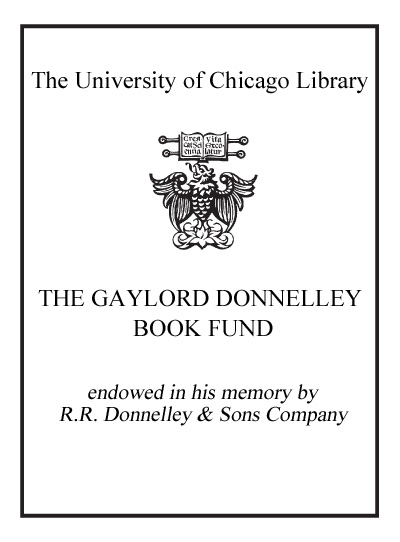The biology of gambling /
Saved in:
| Author / Creator: | Aasved, Mikal J. |
|---|---|
| Imprint: | Springfield, Ill. : Charles C. Thomas, c2003. |
| Description: | xvi, 356 p. ; 26 cm. |
| Language: | English |
| Series: | The gambling theory and research series ; v. 3 Aasved, Mikal J. Gambling theory and research series ; v. 3. |
| Subject: | |
| Format: | Print Book |
| URL for this record: | http://pi.lib.uchicago.edu/1001/cat/bib/5153380 |
Table of Contents:
- Preface
- Acknowledgments
- Introduction to the Series
- A Question of Morals?
- An Addiction?
- The Definitional Issue in Addiction Research
- Co-Addiction
- The Nature-Nurture Controversy in Mental Health and Addiction Studies
- Scientific Approaches
- A Note on Gender Bias
- Introduction to this Volume
- Part I. Medical or Disease Models of Addiction
- Chapter 1.. Early Views
- The Core Features of Addiction
- The medical Model of Alcoholism
- Initial Impressions
- The World Health Organization
- E. M. Jellinek's Disease Concept of Alcoholism
- What Constitutes a Disease?
- The Progression of Alcohol Addiction
- Chapter 2.. Later Views
- The Alcohol Dependence Syndrome
- More Recent Medical Conceptions of Alcoholism
- The Heritability of Addiction
- Family Studies
- Adoption Studies
- Twin Studies
- Conclusions of Heritability Studies
- Longitudinal Studies
- Possible Genetic Markers for Alcohol Dependence
- Abnormal Brain Wave Patterns
- Blood Enzyme Activities
- Neurochemical Imbalances
- Other Possibilities
- Alcoholics Anonymous
- Chapter 3.. The Quest to Discover the Biological Basis of Addiction
- Neurochemistry and Addiction
- The Biology of Reward
- Biochemical Dysfunction, Genetics, and Inherited Addiction
- Dopamine and GABA
- Serotonin
- Endogenous Opiates and TIQs
- Adaptation, Tolerance, and Acquired Addiction
- Summary of Addiction Research
- Part II. Medical or Disease Models of Pathological Gambling
- Chapter 4.. Gambling and Human Evolution
- W. I. Thomas and Clemens J. France: Gambling as a Survival Instinct
- Summary and Critique
- Lamarckian vs. Darwinian Evolutionary Theories: A Brief Digression
- Chapter 5.. Jellinek's Legacy: The Disease Concept of Compulsive Gambling
- Emmanuel Moran: Pathological Gambling as a Medical Syndrome
- Varieties of Pathological Gambling
- Robert L. Custer: The Types and Phases of Compulsive Gambling
- A Typology of Gamblers
- Pathological Gambling as a Psychological Illness
- Critique of Custer's Ideas on the Nature of Addiction
- The Personality of the Compulsive Gambler
- The Psychology of the Compulsive Gambler: Anxiety, Depression, and Low Self-Esteem
- The Biology of the Compulsive Gambler: Personality Factors
- Family History and Withdrawal Symptoms
- The Allure of Gambling
- Addiction as a Habit
- The Phases of Compulsive Gambling
- Suicide
- Female Pathological Gamblers
- Recovery
- Chapter 6.. The Definition and Diagnosis of Pathological Gambling
- GA's 20 Questions
- DSM-III Criteria, 1980
- Criticisms
- DSM-III-R Criteria, 1987
- Criticisms
- DSM-IV Criteria, 1994
- Criticisms
- Jurgen Schwarz and Andreas Lindner: Pathological Gambling as an Incurable Disease of Unknown Origin
- Stages in the Development of Pathological Gambling
- Howard Shaffer and Colleagues: Levels of Gambling Involvement
- Chapter 7.. The Quest to Discover the Biological Basis of Pathological Gambling
- Biochemical Deficiencies and Nonchemical Addiction
- Comorbidity: Pathological Gambling and Other Psychiatric Disorders
- Depression
- Neuropsychological Deficits and Impulsivity
- Critique of Comorbidity Studies
- Intelligence
- Is Pathological Gambling a Hereditary Disorder?
- Family History and Problem Gambling
- Twin Studies
- Chapter 8.. Critique of the Medical Model
- Deviance Is Not a Disease
- Compulsive Gambling Is Not a Disease
- Critique of the Anti-Disease Movement
- Chapter 9.. Critique of the Addiction Model
- Gambling Is Not a Drug
- Tolerance: The Escalation of Risk
- The Loss of Control Concept
- The Gambling Withdrawal Syndrome
- Dissociative States
- The "Big Win" Hypothesis
- Chapter 10.. Treatment Goals: Abstinence vs. Moderation
- Extrapolating from Alcohol Research
- Behavior Modification in the Treatment of Alcoholism
- The Controlled Drinking Controversy
- The Binary Classification of Heavy Drinkers
- The Medical Model Thrives
- The Binary Classification of Heavy Gamblers
- Theoretical Implications
- Summary and Conclusions
- Part III. Multicausal Models of Pathological Gambling
- Chapter 11.. General Theories of Addiction: Relief and Escape
- Preliminary Observations
- Durand jacobs: The Addictive Personality Syndrome
- Critique
- Richard McCormick: Need-State Theory
- Richard McCormick: Learned Helplessness Theory
- Critique
- Chapter 12.. General Theories of Addiction: Sensation-seeking and Arousal
- The "Action" Motive
- The Vicious Cycle and Opponent-Process Theory
- Critique
- R. I. F. Brown: Reversal Theory
- Critique
- Kenneth Blum and Colleagues: The Reward Deficiency Syndrome
- Chapter 13.. Gambling-Specific Theories
- Gerolamo Cardano: The Father of Gambling Studies
- Vicki Abt et al.: The Synoptic Model of Normative Gambling
- Conventional or Benign Gambling
- Nonconventional or Harmful Gambling
- The Synoptic Approach
- Mark Griffiths: The Origins and Persistence of Fruit Machine Gambling
- Michael Walker's General Theory of Gambling: An Eclectic Approach
- The "Distal" Causes of Gambling
- The "Proximal" Causes of Gambling
- Richard Rosenthal: A Modern Psychoanalyst's View
- Gambling Motivations and Expectancies
- Humanizing Pathological Gambling: A Case History
- Alex Blaszczynski: A Pathway Model of Etiology and Treatment
- Critique
- Critique of Multicausal Approaches
- Part IV. Conclusions
- Chapter 14.. Concluding Summary
- Medical Models of Addiction
- The Biological Basis of Addiction
- Medical Models of Pathological Gambling
- The Biological Basis of Pathological Gambling
- Critique of the Medical and Addiction Models
- Treatment: Abstinence vs. Moderation
- Multicausal Models of Pathological Gambling
- Chapter 15.. Concluding Observations
- Preface
- The State of the Art: Where Do We Now Stand?
- Research Priorities: Where Do We Go From Here?
- Appendix.. Summary of Etiological Theories of Gambling
- Notes
- References
- Index


